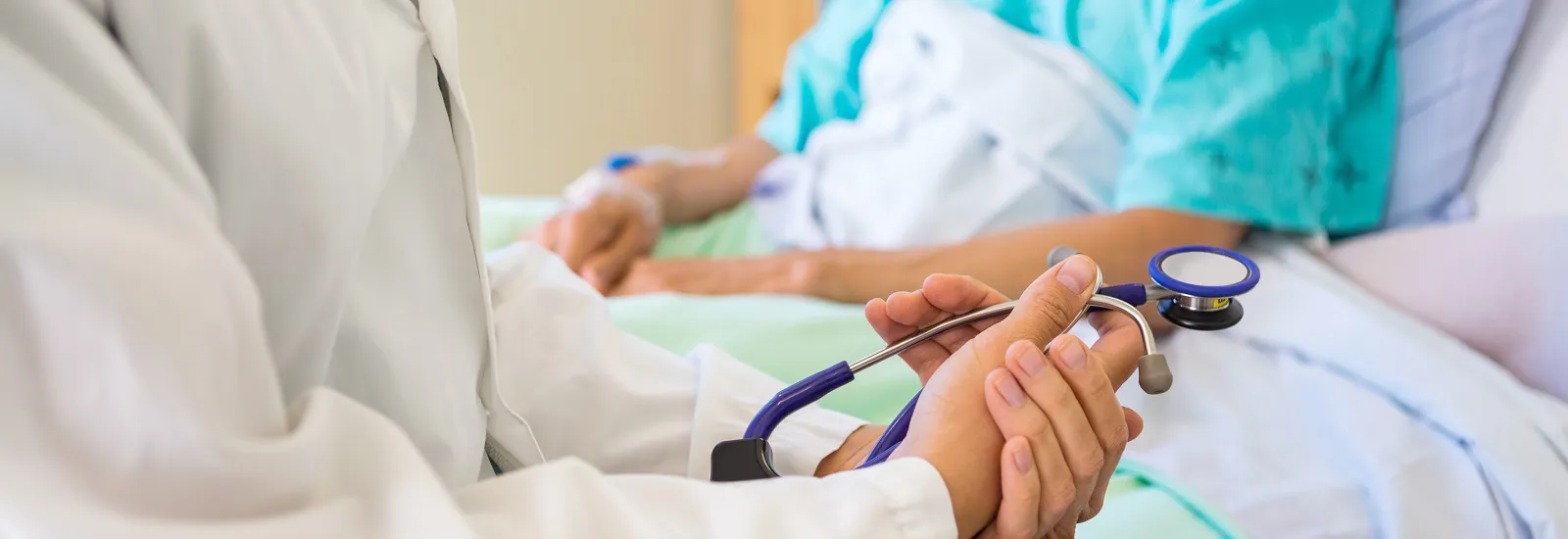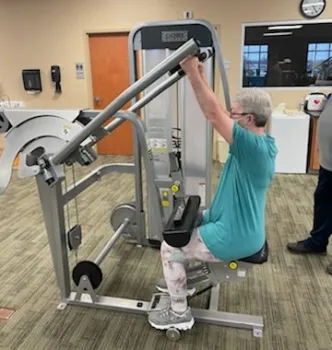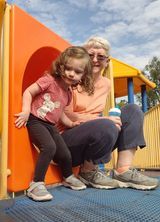
For this stroke survivor, recovery was golden

Malynda Clevenger of Richmond used Reid Health Rehabilitation Services to help recover from a stroke.
Experts call the first three months after a stroke the "golden period" for relearning skills lost to the stroke. But as Malynda Clevenger learned, that length isn't set in stone.
Clevenger, who lives in Richmond, suffered a major stroke in May 2021. Afterward, she couldn't dress herself, feed herself, speak clearly, or walk without support.
"I'd heard the first three months are really important for recovery," Clevenger said. "Once rehab started at Reid Health, I never missed an appointment. Unfortunately, there were many days my blood pressure was so high rehab wasn't safe. I might get in half of my therapy or no therapy. It was really hit or miss."
Clevenger was anxious that her window for recovery was closing.
"My therapists kept telling me, 'We'll get you where you'll need to be. Don't worry about how long it's taking,'" she said. "I'd be doing an exercise with one therapist, and another would notice my progress and cheer me on. It made me want to keep going even when I felt discouraged. I just kept showing up three times a week and doing the best I could."
Clevenger made slow, gradual progress. By the four-month mark, she could walk unassisted and speak more clearly. But her right arm, hand, and fingers weren't working at all. She continued to do rehab -- and worry.
Then in October 2021, Clevenger was hospitalized overnight for high blood pressure. Although stressful, the experience was a turning point. Within a few weeks, her doctor found the right combination of medications to bring her blood pressure under control.
Finally, after six months, Clevenger could participate fully in rehab, but she wondered if it was worthwhile since so much time had passed.
Clevenger and her team of rehab therapists agreed it was. They devised a new plan: Clevenger would continue doing occupational therapy to build her arm strength and coordination and she would transition to a different style of physical therapy with sports medicine specialists at Reid Health.

Clevenger also began attending Reid's Stroke Support Group, which meets monthly. Spending time with other stroke survivors encouraged her to feel more hopeful about the future.
"Once I could do rehab therapy consistently, I began to see significant improvements," Clevenger said. "My therapists gave me a lot of confidence to keep trying. Now I can do almost everything by myself. I'm still gaining skills! Just last week, I buttoned a button for the first time since my stroke."
All these small gains added up to several big ones. By the one-year mark, Clevenger could care for her granddaughter -- something she had loved doing before her stroke. She can drive a car, work out at a fitness center with her husband, cook dinner, feed her dogs, and even crochet, a lifelong hobby she thought she might never resume.
"I want to thank everyone at Reid Health who has helped me make so much progress in the past two years," Clevenger said. "Including my physical therapists Darcey and Jordan, my occupational therapist Reed, my sports medicine specialists Jesse and Trey, and the nurses who lead the stroke support group, Allison and Erika. They are the best!"
Clevenger discontinued her rehab therapy in May 2022 and continues to see improvement. Not long ago, she saw Reed at the grocery store and updated him on her progress.
"When I told him I was disappointed I still couldn't write very well, he said, 'Give it time, you'll be fine,'" she says. "I believe him!"

